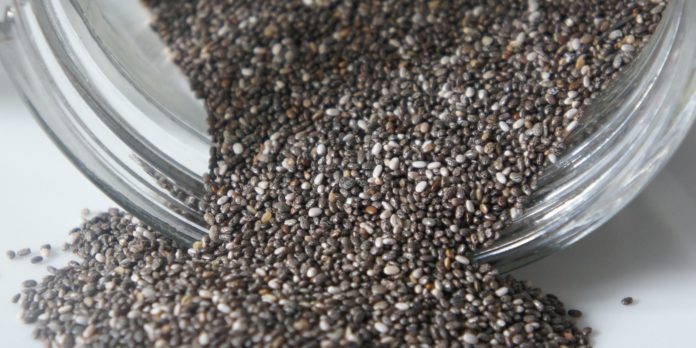Add These Foods to Your Diet
Omega 3 Fatty Acids are essential and healthy fat compounds that your body needs to stay healthy and strong. It is an important and one of the most beneficial fats in the world. Your body does not produce this fat. It can only be obtained from foods and is most common in animal-based foods. This is why it is important to eat foods that are rich in Omega 3 Fatty Acids.
Nevertheless, most people do not know or understand what Omega 3 Fatty Acids are. They do not know their nutritional benefits and the sources of foods that are packed with this important fact. This article elaborates on the basic things you need to know about Omega 3 Fatty Acids, including the several types and the plant-based foods that are Omega 3 Fatty Acids rich.
Types of Omega 3 Fatty Acids
There are 3 distinct types of Omega 3 Fatty Acids. They include Alpha-linolenic acid, Docosahexaenoic acid, and Eicosapentaenoic acid, with abbreviations like ALA, DHA, and EPA attached to them, respectively. Most foods that are rich in Omega 3 Fatty Acids are animal-based foods like fatty fish. However, recently, the research found a group of plant-based foods that are packed with Omega 3 Fatty Acids. Some of these plant-based foods include flax seeds and oil, Walnut among others.
ALA
ALA is the abbreviation for Alpha-linolenic acid. It is said, according to research, to be the most common Omega 3 fatty acid that is present in almost all Omega 3 rich foods. It can also be converted into other forms of Omega 3 fatty acids like EPA and DHA biologically and can be broken down to provide the body with energy. However, this conversion is not as much as expected, as only a tiny percent of ALA can be converted biologically. Some of the foods that are rich in this ALA fatty acid include flaxseed, chia seeds, soybeans, hemp seeds, and walnuts.
EPA
EPA is the abbreviation for Eicosapentaenoic acid, ad unlike ALA, it is more common in animal-based foods like fatty fish and fish oils. A small percentage of it can also be biologically converted to DHA.
DHA
DHA is an abbreviation of Docosahexaenoic acid. Of all the other types of Omega 3 fatty acids, DHA is the most important. It helps in the structuring and development of the brain, improves the eyes and other vital organs in the body. It is also common in animal products like fish oil and fatty fish, eggs and meat, as well as dairy.
Due to the rich food sources of DHA Omega 3 fatty acids, vegetarians and vegans always lack this type of fatty acid.
Importance of Omega 3 Fatty Acids
They keep the brain and retina healthy.
They are essential pregnancy fats that can help in the development of the brain of the child.
It can help in the prevention and management of certain illnesses like depression, ADHD, breast cancer, and inflammatory diseases.
Plant-Based Foods That Are Abundant in Omega 3 Fatty Acids
Chia Seeds
Chia seeds are known for their high protein and fiber contents. They are also rich sources of ALA fatty acids. Chia seeds can help in the prevention of certain chronic illnesses when you add them to your diet.
According to research, consuming chia seeds can help reduce the risks of inflammatory markers, blood triglycerides, and glucose intolerance.
You can enjoy chia seeds by grinding them and adding them to your smoothies.
Brussels Sprouts
Asides from their high vitamins C and k, as well as their fiber contents, brussels sprouts are wealthy sources of Omega 3 fatty acids. Due to its richness in this essential fat, it has been linked to the prevention and treatment of many illnesses and diseases, as well as the provision of a number of other health benefits as improvement of the health.
In fact, consuming brussels sprouts or any other cruciferous vegetable can reduce your risk of developing heart disease by up to 16%.
You can enjoy Brussel sprouts by blanching, roasting, or stir-frying. Whichever way you prefer to have them prepared, they turn out to be delicious.
Algae Oil
 Algae oil is packed with both DHA and EPA Omega 3 fatty acids. It is a plant-based food that is nutritional and contains a combination of two essential types of Omega 3 fatty acids. Many people have used algae oil to cook foods, and they discovered that it is not only delicious but also tolerated, especially in terms of absorption by the body.
Algae oil is packed with both DHA and EPA Omega 3 fatty acids. It is a plant-based food that is nutritional and contains a combination of two essential types of Omega 3 fatty acids. Many people have used algae oil to cook foods, and they discovered that it is not only delicious but also tolerated, especially in terms of absorption by the body.
Due to its wealthy contents of Omega 3 fatty acids, algae oil has been linked to many health benefits, and has been declared by experts to be safe for consumption, and has the tendency of providing healthy and nutritional benefits to the body.
Research has shown that algae oil and some seafood have a similar nutritional profile. I’m addition, further comparisons with fatty fishes like salmon showed that both so not only possess equal amounts of nutrients but also have equal amounts of tolerability in terms of absorption by the body.
Algae oil, when consumed in moderate amounts, can help improve brain functions. You can add alae oil to your smoothies or use it to fry, as it is safe for consumption.
Hemp Seeds
Hemp seeds are packed with magnesium, protein, zinc, and iron. Asides from these essential nutrients, they have very high omega 3 fatty acids contents.
Hemp seeds provide the body with healthy benefits, some of which include the protection of the brain and heart health. They can also help prevent the unnecessary clotting of blood or the accumulation of blood clots in the body, thereby helping the heart heal up very fast, especially after a heart attack.
You can enjoy hemp seeds by crushing them and adding them to your yogurts. You can also mix crushed hemp seeds with other seeds like chia or flax seeds and then add the mixture to either your yogurt or smoothie.
Walnuts
According to research, walnuts contain 65% fat when weighed. These fats are healthy fats, mostly Omega 3 fats and specifically the ALA Omega 3 fatty acids type. Due to the Omega 3 content in Walnut, studies have shown that consuming walnuts regularly could help improve brain health through the boosting of memory and improvement in learning. It also reduces the risks of certain memory diseases like Alzheimer’s disease.
Grind walnuts into powder and sprinkle the powder into your yogurts, cereals, or smoothies. They are delicious nuts and are safe and healthy for consumption.
Flaxseeds
Flaxseeds, other than their Omega 3 fatty acids contents, contain other nutrients like finer, magnesium, protein, and manganese. They have been connected to improving heart health by reducing high cholesterol levels in the body. They can also lower blood pressure in people who have high blood pressure. All of these health benefits are courtesy of its Omega 3 fatty acids.
Flax seeds are quite easy to incorporate into your diet. Adding crushed flax seeds to your cereals, smoothies, and backed products are awesome ways of enjoying flaxseeds.
Perilla Oil
Perilla oil is common among Koreans, and it is mostly used to prepare their best cuisines. It has a very nice flavor and can be used in the preparation of various kinds of foods. Coupled with this benefit, it is packed with Omega 3 fatty acids, particularly the ALA Omega 3 fatty acids. In addition, it can also cause a boost in the levels of other Omega 3 fatty acids like EPA and DHA.
 Research has shown that 65% of the oil is made up of ALA Omega 3 fatty acids. If you want to secure the most out of perilla oil, use it to dress foods or salad ls rather than heating or cooking them. This is because when it is polyunsaturated fat and this group of fats when they are exposed to heat, it can turn into free radicals that can cause cellular damage to the body.
Research has shown that 65% of the oil is made up of ALA Omega 3 fatty acids. If you want to secure the most out of perilla oil, use it to dress foods or salad ls rather than heating or cooking them. This is because when it is polyunsaturated fat and this group of fats when they are exposed to heat, it can turn into free radicals that can cause cellular damage to the body.
Perilla oil is sold in capsule forms.
In conclusion, omega 3 fatty acids are essential fat everyone needs to grow healthy. They are mostly found in animal-based foods, and this is why most vegans and vegetarians lack this fat. However, some plant-based foods have been discovered to contain reasonable amounts of Omega 3 fatty acids, such that vegans and vegetarians no longer need to lose out on the essential fatty acids.




